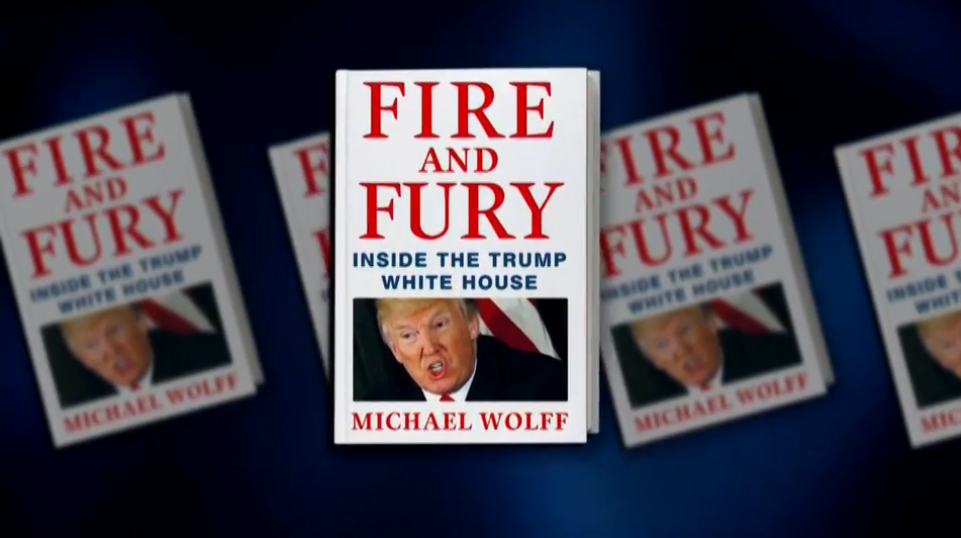Michael Wolff’s explosive new book on the Donald Trump White House has revealed how battle-lines and power centres around the president are perceived along Jewish and non-Jewish lines, and how Trump prefers “tough guy Jews”.
The respected journalist’s book ‘Fire and Fury,’ published against a media storm and Trump’s legal threats, starkly outlines the central role of Jews, Judaism, Jewish identity and Israel to U.S. executive decision-making in the post-Obama era.
It also reveals how power politics in America’s huge Jewish community were jolted after Trump’s Jewish son-in-law, Jared Kushner, who Wolff describes as a “prepped out social climber” and a Jewish “nobody,” became “Israel’s great protector” after Trump put the young real estate scion in charge of Middle East peace.
“Nobody was more perplexed by his sudden rise… than U.S. Jewish organisations,” Wolff writes. “Now, the Jewish great and the good, the venerated and the tried, the mandarins and myrmidons, had to pay court to Jared Kushner … who until little more than a few minutes ago had truly been a nobody.”
The well-researched insider account, based on hundreds of interviews over 18 months, has been flying off the shelves, and highlights the influential yet unnoticed role of another Jew – Gary Cohn – appointed Trump’s top economic advisory.
Wolff describes how Kushner and Cohn won the war of briefings and counter-briefings against Steve Bannon, a right-wing populist beloved of Israeli Prime Minister Benjamin Netanyahu, after Kushner decided Bannon hated Jews.
Bannon, Trump’s strategy man before being sacked by the president in the summer, headed right-wing news website Breitbart, whose readers and supporters include America’s white nationalist base, had earlier baited Kushner as being soft on Israel.
“After months of defending Bannon against liberal media innuendo, Kushner had concluded Bannon was an anti-Semite, that was the bottom-line issue,” writes Wolff, describing how the president’s two top men effectively went to war over Israel.
Kushner’s conclusion was a hard-sell to Trump “because one of Bannon’s accusations against Kushner, the administration’s point person on the Middle East, was that he was not nearly tough enough in his defence of Israel,” says Wolff.
“Bannon’s effort to grab the stronger-on-Israel label was deeply confounding to Kushner, an Orthodox Jew,” writes Wolff. “His closest lieutenants in the White House, Avi Berkowitz and Josh Raffel, were Orthodox Jews.”
The author says that, for Kushner, “Bannon’s right-wing defence of Israel, embraced by Trump, somehow became a jujitsu piece of anti-Semitism aimed directly at him”.
He writes: “Bannon seemed determined to make Kushner appear weak and inadequate… So Kushner struck back, bringing into the White House his own tough-guy Jews— Goldman Jews,” in a reference to the giant investment bank.”
Charting Bannon’s subsequent downfall, Wolff says the Breitbart man “had allowed himself to become—through his orchestration of right-wing media themes and stoking of liberal outrage—a winking suggestion of anti-Semitism,” adding: “It was certainly good right-wing business to annoy liberal Jews.”
Elsewhere, a picture emerges of a president whose aides have to contain him as would nursery staff a toddler, while conversations – such as that on Trump’s Marine One helicopter – show him justifying membership of the Ku Klux Klan.
The book also hears from former U.S. Secretary of State Henry Kissinger, the neoconservative diplomat who served under Richard Nixon and helped define U.S. foreign policy, with Trump telling Wolff that Kushner is “the new Kissinger”.
In a task that may have been beyond even the great statesman, Wolff records that Kushner was given the near-impossible task of facilitating peace between Israelis and Palestinians precisely because he was Jewish.
“For Trump, giving Israel to Kushner was not only a test, it was a Jewish test,” Wolff writes. “The president was singling him out for being Jewish, rewarding him for being Jewish, saddling him with an impossible hurdle for being Jewish—and, too, defaulting to the stereotyping belief in the negotiating powers of Jews.”
Kissinger, 94, described the White House manoeuvring in 2017 as being “a war between the Jews and the non-Jews,” with Jews to-date coming out on top.


























